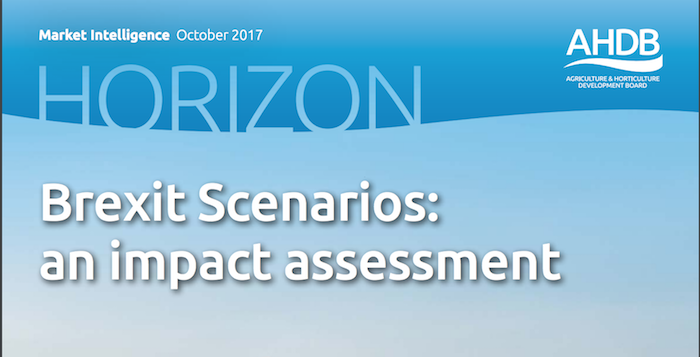The NPA has urged caution in reading too much into a new report suggesting Brexit will boost pig farm incomes.
AHDB’s latest Horizon report, Brexit scenarios: an impact assessment, looked at the impact of various future scenarios on the different sectors of agriculture. While the report painted a worrying picture for most sectors, pigs stood out as beneficiary under all scenarios modelled.
Under one scenario, a move to World Trade Organisation tariffs for all trade, pig incomes are forecast to quadruple. Under the other scenarios, broadly the status quo and a liberal trade policy where the UK lowers its barriers to imports, the pig industry is still projected to record more modest income rises.
The projected increases are driven mainly by increases in UK market prices caused by the additional costs of imports, particularly for the WTO scenario where tariffs dramatically hike up the cost of imports. This would enable investment in the industry.
In the modelling, this effect heavily outweighs any changes in support payments and costs, including rising labour costs.
The report does include are some major caveats, however. For example, the huge rise in income under the WTO scenario would reduce once the industry has time to adapt and increase production, while the impact of higher prices on consumer demand also needs to be taken into account.
Furthermore, the report authors acknowledge that difficulty in balancing the carcase could ‘considerably reduce’ forecast price rises.
And the report notes that access to labour and managerial expertise will remain key barriers to growth.
NPA response
With so many variables at play, however, it would be unwise to draw any firm conclusions from the analysis, the NPA has stressed.
NPA chief executive Zoe Davies said: “The analysis makes the future look jolly bright for the pig sector, especially where scenarios raise the costs of imports.
“But the headline numbers need to be taken with a very large pinch of salt as there are so many variables that could have a much bigger impact than this report predicts, for example, for the loss of key EU export markets, such as sow carcases, to Germany and an influx of cheap, lower standard pork imports under future trade agreements.
“And on labour, it isn’t just about cost. It is about whether the UK pig industry can attract enough workers to sustain even current production levels, let alone expand to replace imports.”
“And of course, we ignore the impact of carcase balance at our peril.”




